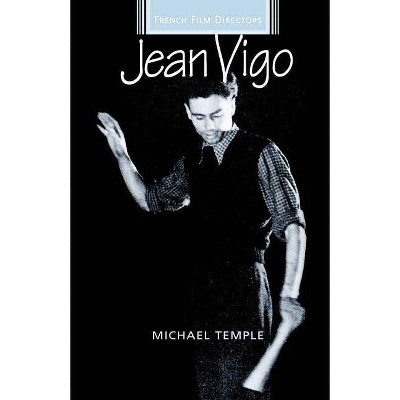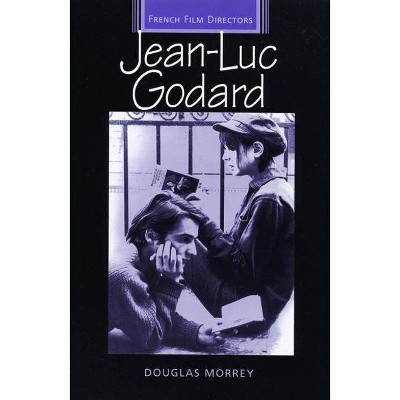Jacques Audiard - (French Film Directors) by Gemma King (Hardcover)

Similar Products
Products of same category from the store
AllProduct info
<p/><br></br><p><b> About the Book </b></p></br></br><i>Jacques Audiard</i> is the first book on one of the most important French directors working today. Focusing on the representation of the physical body, French society and broader transnational contexts, it reveals how Audiard's cinema occupies a space both within and beyond the imaginary of French cinema.<p/><br></br><p><b> Book Synopsis </b></p></br></br>Fragile yet powerful, macho yet transgressive, Jacques Audiard's films portray disabled, marginalised or otherwise non-normative bodies in constant states of crisis and transformation. <i>Jacques Audiard</i> is the first book on the cinema of one of the most important French directors working today. It studies his screenwriting background, his collaborative practices and his use of genre motifs alongside his reputation as a celebrated French <i>auteur</i>. Using the motif of border-crossing - both physical and symbolic - the book explores how Audiard's films construct and transcend boundaries of many forms. Focusing on the representation of the physical body, French society and broader transnational contexts, it reveals how Audiard's cinema occupies a space both within and beyond the imaginary of French cinema.<p/><br></br><p><b> From the Back Cover </b></p></br></br>This is the first book dedicated to the career and films of Jacques Audiard. It argues that the work of this prominent French director both reinforces and undermines the traditional concept of the <i>auteur</i>. The book traces Audiard's career from his early screenwriting projects in the 1970s to his eight directed feature films: <i>Regarde les hommes tomber, Un héros très discret, Sur mes lèvres, De battre mon coeur s'est arrêté, Un prophète, De rouille et d'os, Dheepan </i>and<i> Les Frères Sisters</i>. From a prison outside Paris to a war zone in Sri Lanka, from a marine park on the Côte d'Azur to the goldfields of the American Wild West, these films revolve around the movement of bodies. Fragile yet powerful, macho yet transgressive, each of them portrays disabled, marginalised or otherwise non-normative bodies in constant states of crisis and transformation. The book uses the motif of border-crossing - both physical and symbolic - to explore how Audiard constructs and transcend boundaries of many kinds. It focuses on his representation of the physical body, French society and broader transnational contexts. Located somewhere between the arthouse and the B-movie, the French and the transnational, the feminist and the patriarchal, the familiar and the new, Jacques Audiard's characters and films reflect his own eternally shifting position, both within and beyond the imaginary of French cinema.<p/><br></br><p><b> About the Author </b></p></br></br>Gemma King is Senior Lecturer in French Studies at the Australian National University
Price History
Price Archive shows prices from various stores, lets you see history and find the cheapest. There is no actual sale on the website. For all support, inquiry and suggestion messages communication@pricearchive.us




















